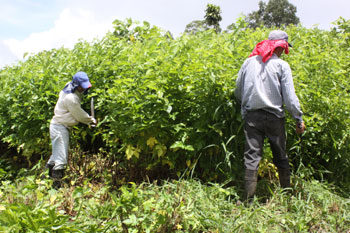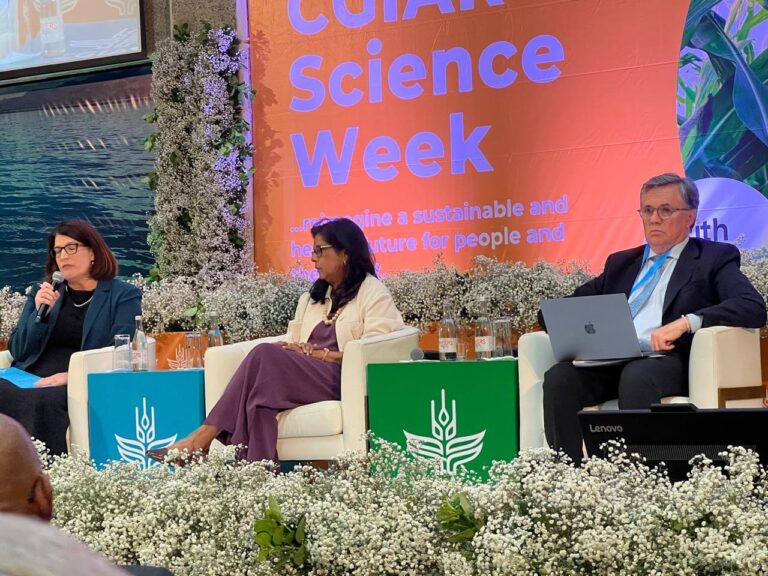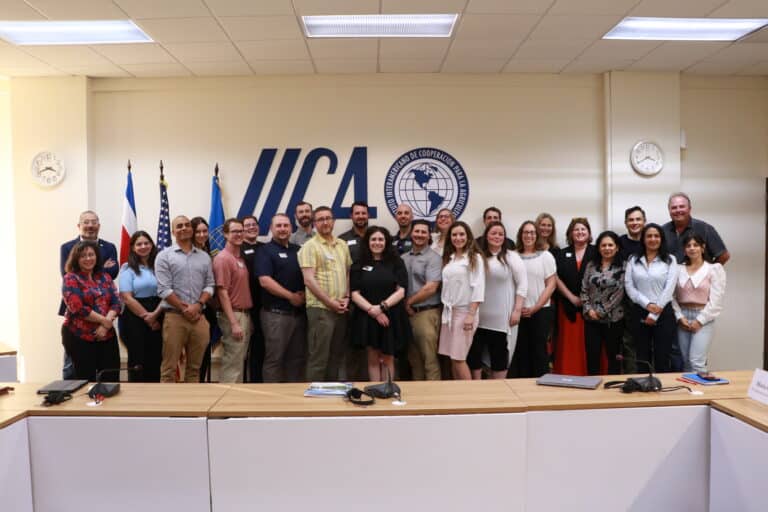In Doha, Qatar, the MAG and MINAET, with support from IICA, CATIE, and GIZ, will showcase seven examples of how the public and private sectors can act together to deal with the effects of climate change.

San Jose, Costa Rica, November 28, 2012 (IICA). The actions that Costa Rica is implementing in seven specific subsectors to mitigate greenhouse gas (GHG) emissions and adapt its agriculture to climate change will be presented to the world on December 7 in Doha, Qatar, during the Conference of the Parties to the United Nations Framework Convention on Climate Change (COP 18).
The country will be showcasing specific efforts in the areas of family farming, dairy and sugarcane production, transfer of technology to small farmers, risk management, reduction of emissions in the coffee industry, and public-private partnerships in the banana subsector to achieve carbon neutrality. Gloria Abraham, Minister of Agriculture and Livestock, and René Castro, Minister of Environment, Energy, and Telecommunications, will be in charge of the activity taking place parallel to COP 18.
The Inter-American Institute for Cooperation on Agriculture (IICA), the Tropical Agriculture Research and Higher Education Center (CATIE) and Germany’s international cooperation agency (GIZ) will be supporting the presentation of the cases at the important event, where politicians, researchers, and world leaders will be discussing possible ways of mitigating and adapting to climate change.
David Williams, manager of IICA’s Agriculture, Natural Resources and Climate Change Program, will also be speaking on the mitigation and adaptation efforts of Costa Rica’s agriculture subsectors. Materials containing a summary of the presentations by Abraham and Castro can be consulted at www.mag.go.cr/cambio-climatico/cambio-climatico.html.
The Ministry of Agriculture and Livestock (MAG) and the Ministry of Environment, Energy and Telecommunications (MINAET) have spearheaded the coordination and systematization of these actions.
“We want to show the world that a small country like ours has much to contribute to the solution of a global problem and that smallholders can do a great deal by adopting environmentally friendly and sustainable practices. We are implementing concrete actions going beyond mitigation, we are advancing toward adaptation to climate change,” Minister Abraham remarked.
“The first 17 climate change summits focused on the issue of forests but that cycle has come to an end. The contribution that Costa Rica can make from COP 18 onward, preaching by example, is in agriculture,” Minister Castro added.
“COP 18 is a propitious occasion to recognize that agriculture is vital for world food security and very susceptible to climate change. It is also a very valuable opportunity to reaffirm that the sector can make major contributions to the challenges of mitigation and adaptation,” observed Víctor M. Villalobos, Director General of IICA.
“Costa Rica is a great laboratory, where people are experimenting with real actions to reduce GHG emissions, and an institutional framework is already in place that can serve as an example to other nations seeking to undertake similar challenges,” added IICA’s David Williams.
COP 18 began on November 26 and will end on December 7, the day on which Costa Rica will be presenting its successful cases. According to the invitation sent by ministers Abraham and Castro to the rest of the participating delegations and the accredited media organizations, the activity will be taking place at 13:15 local time (04:15 in Costa Rica) in Room 8 of Qatar’s National Convention Center.
For more information contact:
david.williams@iica.int
prensa@mag.go.cr
Katiana Murillo, press advisor to the Climate Change Directorate of MINAET (special correspondent to Doha) murillo.katiana@gmail.com











